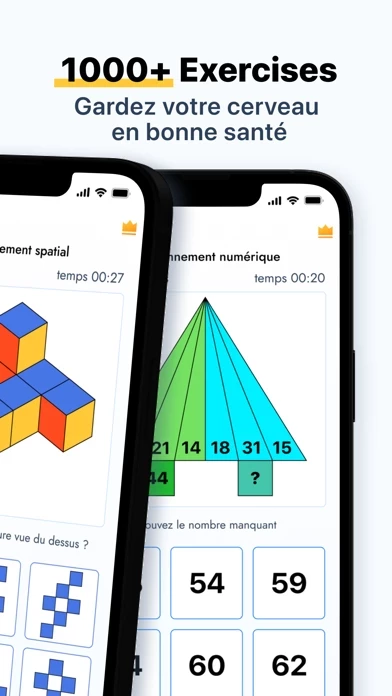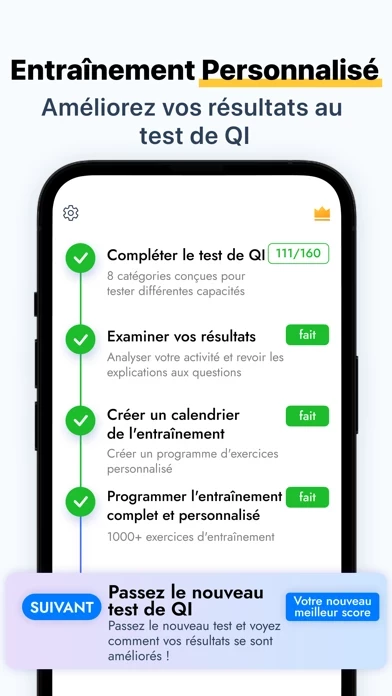IQ Brain Training IQ Tests Reviews
Published by Pavel Kechko on 2025-03-03🏷️ About: An intelligence quotient (IQ) is a total score derived from a set of standardized tests or subtests designed to assess human intelligence. People with much higher than average IQ or intellectual quotients (>130), also called gifted, tend to be more at ease than others during intellectual activities.














